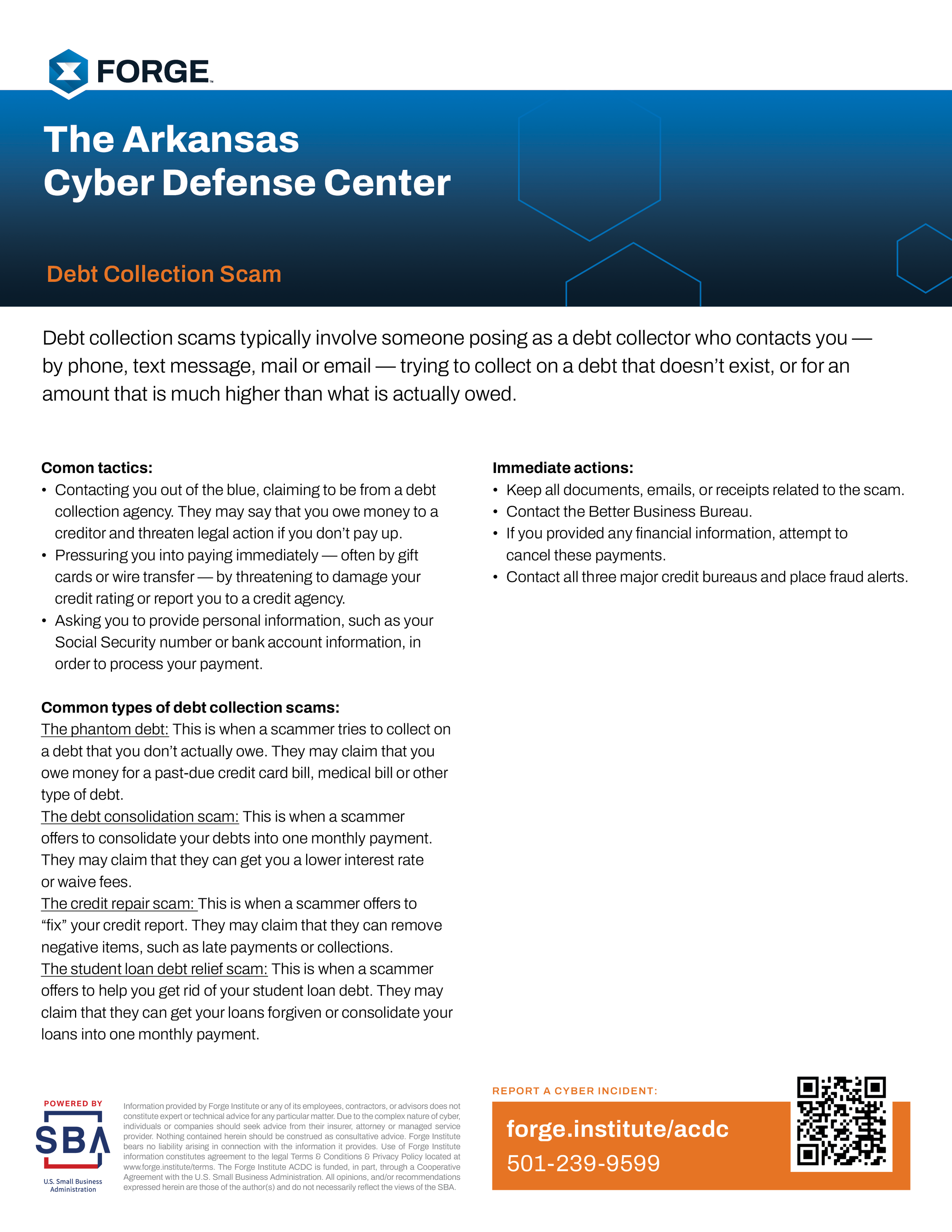Debt Collection Scam
Debt collection scams typically involve someone posing as a debt collector who contacts you — by phone, text message, mail or email — trying to collect on a debt that doesn’t exist, or for an amount that is much higher than what is actually owed.
Comon tactics:
• Contacting you out of the blue, claiming to be from a debt collection agency. They may say that you owe money to a creditor and threaten legal action if you don’t pay up.
• Pressuring you into paying immediately — often by gift cards or wire transfer — by threatening to damage your credit rating or report you to a credit agency.
• Asking you to provide personal information, such as your Social Security number or bank account information, in order to process your payment.
Common types of debt collection scams:
The phantom debt: This is when a scammer tries to collect on a debt that you don’t actually owe. They may claim that you owe money for a past-due credit card bill, medical bill or other type of debt.
The debt consolidation scam: This is when a scammer offers to consolidate your debts into one monthly payment. They may claim that they can get you a lower interest rate or waive fees.
The credit repair scam: This is when a scammer offers to “fix” your credit report. They may claim that they can remove negative items, such as late payments or collections.
The student loan debt relief scam: This is when a scammer offers to help you get rid of your student loan debt. They may claim that they can get your loans forgiven or consolidate your loans into one monthly payment.
Immediate actions:
• Keep all documents, emails, or receipts related to the scam.
• Contact the Better Business Bureau.
• If you provided any financial information, attempt to cancel these payments.
• Contact all three major credit bureaus and place fraud alerts.


